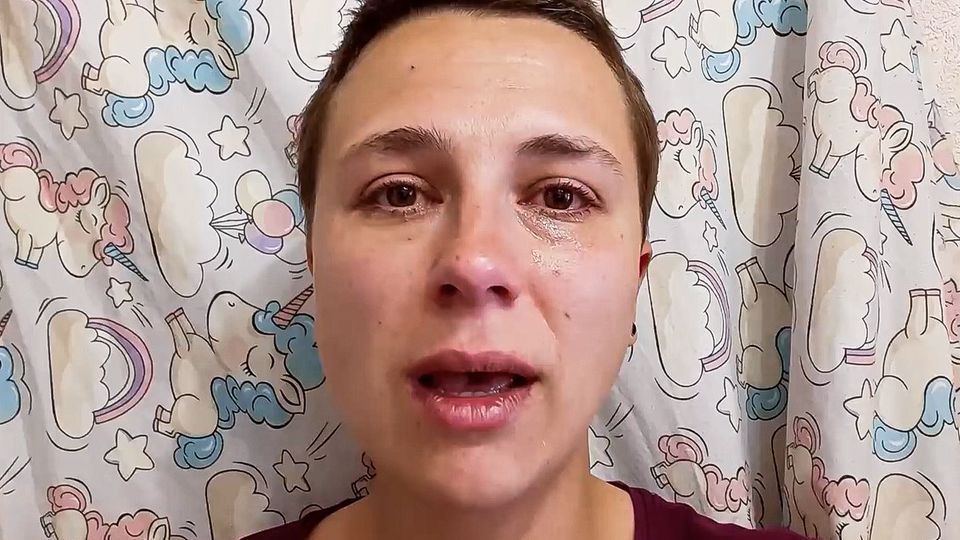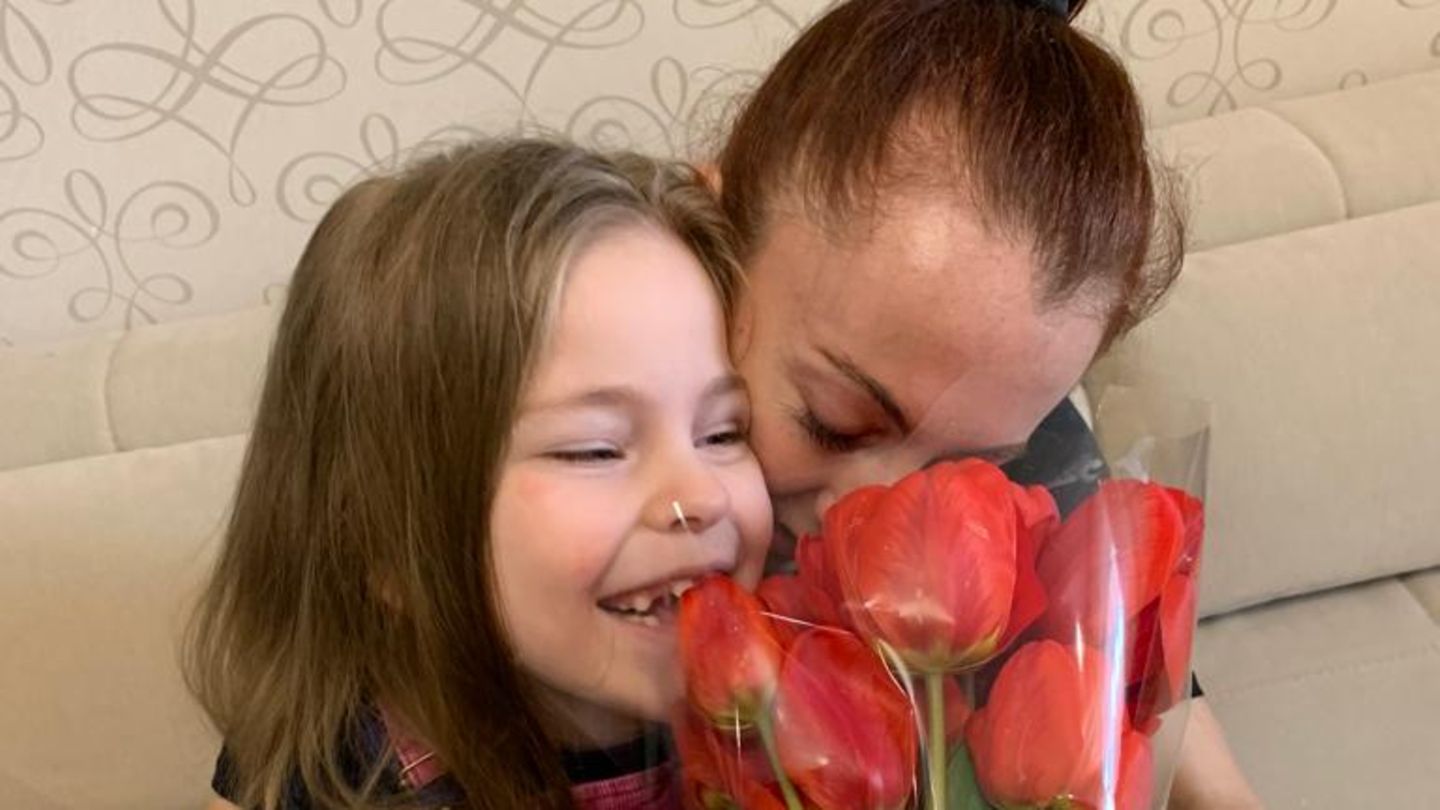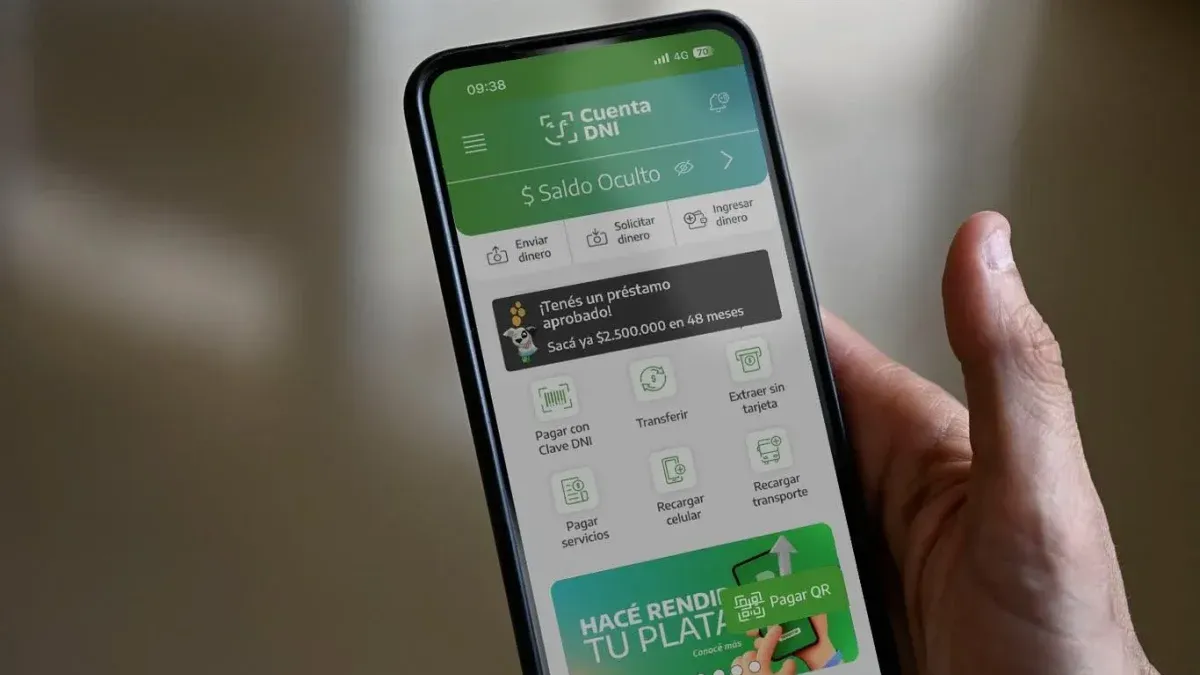interview
More than 100 million people are displaced. Journalist Sandy Bossier- Steuerwald interviews women who fled Ukraine and publishes their stories. On World Refugee Day, she explains why she is so moved.
Shortly before World Refugee Day on June 20, the UN Refugee Agency (UNHCR) reported that for the first time more than 100 million people are fleeing – more than at least since the Second World War. A major crisis is the war in Ukraine, which has forced millions of people to flee. With her project “Women on the Run”, the journalist Sandy Bossier- Steuerwald is dedicated to the Ukrainian women who come to or through Germany. She then publishes the often long conversations full of moving stories as well as on social media such as .
Ms. Bossier- Steuerwald, how did you come up with the “Women on the Run” project?
It was a completely spontaneous idea. Before the war I had hardly dealt with Ukraine, I don’t speak a word of Ukrainian. After the outbreak of war there was suddenly this great solidarity in my circle of friends. I thought about what else I can do besides donating clothes and money.
I met the first Ukrainian woman through friends and quickly felt the urge to talk to her and other women. That’s when I noticed: these are modern, courageous women who were just living life to the full – as loving mothers, successful managers or researchers. For her, the attribute “refugee woman” is new, not part of her self-image. Besides that, I was tired of following the terrible news from Ukraine, where the war was becoming more and more abstract. These personal stories make the war much more relatable. That’s how it came about that, as a journalist, I now regularly write about women who are interested in telling their stories.
How do you approach women and build trust?
At the beginning, the women came from my immediate environment, sometimes I was “recommended”, for example in a refugee café. I have noticed that a large-scale appeal is of little use. You need a personal connection, because a lot is about trust. Although the women are more or less traumatized, they open up very much. Tears of sadness and pain usually flow in the conversations, but sometimes also tears of joy. I don’t have any prepared questions, but let the women address what’s on their hearts – for me it’s also a heart project.
Which of the stories has touched you the most so far?
I was really touched by each of these extraordinary stories from these ordinary women. Sometimes in conversation I think that the experiences can hardly be topped. And then the story of the next interview partner suddenly sounds like a Hollywood drama or a true fairy tale. It’s crazy.
A special story for me is , who had to leave her daughter with cerebral palsy in a wheelchair with her grandmother in the Ukraine. The seven-year-old actually needs special food and, above all, warm food. But the circumstances have meanwhile become difficult, and Inessa has been hoping for months that there is a way to get her daughter out of the Ukraine.

I was also moved by the fate of . She stayed in a subway station for four days after the Russian attack began, then fled. Her friends stayed because they were too afraid to flee. Katya told me in early May, “I don’t know if they’ll make it out yet or if they’ll die tomorrow.”
Do you have a dream related to the project?
It would be great if I could draw attention to certain issues, such as the fate of war orphans. Or if I could mediate – be it money, a transport for the daughter who is stuck in the Ukraine or other help. I would like to make a difference.
Source: Stern
David William is a talented author who has made a name for himself in the world of writing. He is a professional author who writes on a wide range of topics, from general interest to opinion news. David is currently working as a writer at 24 hours worlds where he brings his unique perspective and in-depth research to his articles, making them both informative and engaging.




